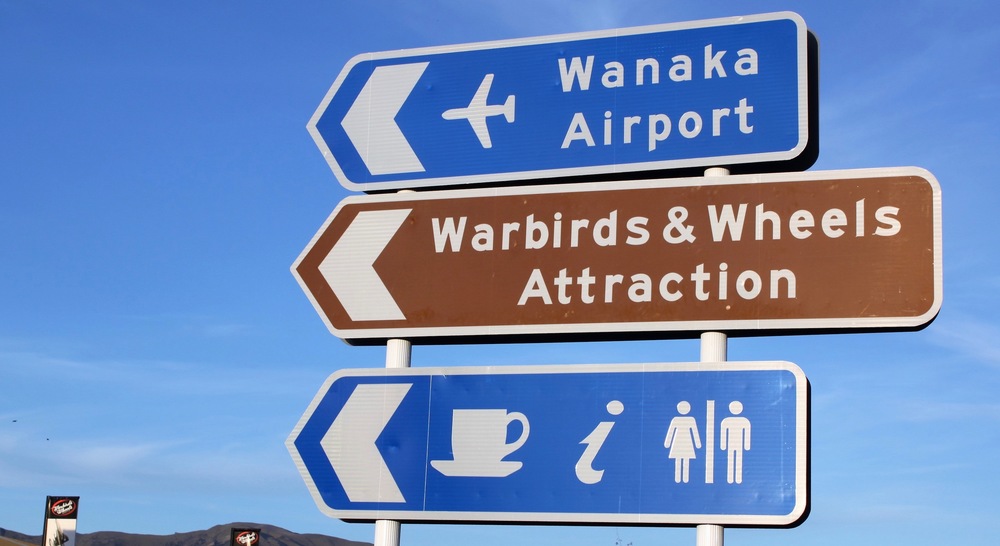Airport community resilient
Diana Cocks
27 July 2020, 6:08 PM
 Aircraft movements at Wanaka Airport dropped dramatically from 5,500 in April 2019 to just one hundred 12 months later. PHOTO: Esther Small
Aircraft movements at Wanaka Airport dropped dramatically from 5,500 in April 2019 to just one hundred 12 months later. PHOTO: Esther SmallThe airports in Queenstown and Wanaka continue to operate and employ hundreds of locals despite the impact of COVID-19 pandemic restrictions and some staff redundancies.
Wanaka Airport is home to about 20 businesses and Queenstown Airport around 60, providing a wide range of skilled employment opportunities which make a significant contribution to the local economy.
Pre-pandemic, Wanaka’s airport based businesses employed around 300 people in a variety of jobs from visitor attractions, cafes, and skydiving through to commercial passenger services, flightseeing operations, flying schools, and aircraft engineering, maintenance and restoration.
Weeks of lockdown coupled with closed borders have meant the number of aircraft operations at Wanaka has dropped dramatically but “there’s still flying every day”, Wanaka airport facilities and maintenance manager Ralph Fegan said.
The total number of commercial and recreational aircraft movements at Wanaka airport in March 2020 dropped 69 per cent compared with 2019: during lockdown in April it plummeted 98 per cent.
As restrictions gradually lifted May recorded a total of 1,238 aircraft movements (a decrease of 74 per cent on 2019; and June recorded a total of 1,816 aircraft movements (about 38 per cent down on last year). Aircraft movements were also affected by poor weather conditions.

Wanaka Airport businesses employ hundreds of staff making a significant contribution to the local economy. PHOTO: Wanaka App
Ralph said many of the businesses have had to reassess the hours staff are working and there have been some redundancies, and some of the engineering companies which reduced their operations to four days are now back to five.
“It’s certainly not as busy as it used to be, which is understandable, but things are ticking along pretty well,” he said. “Nobody has closed up their business or offered their hangar to lease”.
He said there was even a new business soon to open at the airport (he wouldn’t divulge its details) which indicated confidence in the airport’s future.
“And the sooner we get Sounds Air the better,” he said referring to the proposal by Sounds Air to establish a scheduled commercial passenger service between Wanaka and Christchurch.
RELATED
Christchurch Airport unveils plans for jet-capable airport at Tarras
Sounds Air confident about its proposed air service
Queenstown Airport Corporation (QAC) chief executive Colin Keel said despite the challenges of the current situation the airport communities remain strong, committed and resilient.
Colin said QAC provided rent relief to the majority of Wanaka airport operators from 1 April to 30 June and will provide ongoing relief where possible to support the airport community.
“The last several months have certainly been tough for our region and for our airport community. We have been working through a plan to stabilise the business and ensure it is able to recover over the months and years ahead.”
The government’s wage subsidy programme was used to retain all permanent QAC staff until the end of the current financial year (June 30 2020) but as airport activity levels are forecast to be about 50 per cent of pre COVID-19 levels QAC has decided to restructure, Colin said.
“We have approached the organisational restructure with a focus on retaining capacity and capability wherever possible to ensure operational resilience,” Colin said. He would not reveal how many staff had been made redundant.
“Looking forward, we recognise the important role we can play in supporting the recovery of the district.”
“One silver lining is the opportunity to pause and reset and for QAC, the airport businesses and the wider community to work together to make decisions about the future. We should put differences aside and come together to define what ‘sustainable’ means for our region and work collaboratively to achieve it,” Colin said.
He also suggested locals could support their airport community by taking advantage of some great deals being offered, including skydiving, helicopter trips, flightseeing and pilot training courses.





